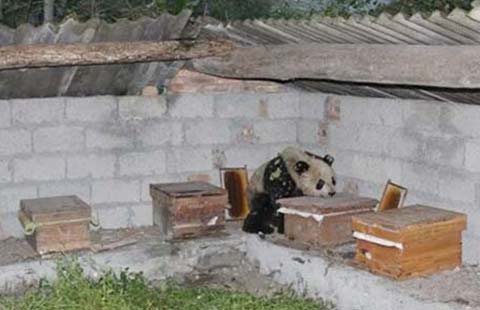Three honored as China's top eco-cities revealed
Updated: 2015-09-10 21:11
By He Na(chinadaily.com.cn)
|
||||||||
China's top 10 eco-cities have been unveiled and Zhuhai in Guangdong province, Xiamen in Fujian province and Sanya in Hainan province stood out to receive honors, according to the Report on the Development of China's Eco-Cities (2015), released in Beijing on Thursday.
The remaining seven are Tongling, Xinyu, Huizhou, Zhoushan, Shenyang, Fuzhou and Dalian. The top 10 were selected from some 284 eco-cities nationwide ranked as very healthy cities to work and live in, according to the report.
Beijing, Shanghai, Tianjin and Chongqing are also in the Top 100, but rank from 33 to 80, the report said.
As one of China's most authoritative reports on eco-cities, the study was jointly conducted by the Research Center for Cultural Policies of the Chinese Academy of Social Sciences, the Institute of Urban Development of Gansu province, Lanzhou City University and Social Sciences Academic Press.
"Resources boomed in cities in China's vast western region which has made big progress as many cities in the western region are in the top 100 list," said Liu Juke, deputy director of the Institute of Urban Development of Gansu province. They are proof of China's Go West Campaign initiated by the central government in 1999; added Liu, who is also chief editor of the report.
He also pointed that among the 284 eco-cities, only 3.78 percent were judged very healthy to work and live in, while the remaining 178 ranked from 12th to 189th were ranked as healthy. The 86 cities ranking from 190 to 275 are rated sub-healthy and account for 30.28 percent of the total.
"Some 3.17 percent are ranked as unhealthy ones which means the task to build eco-cities in the future is still very tough," Liu added.
The relationship of eco-cities' construction and urbanization is another major area for the report. It explained that eco-cities' construction is an inevitable course for urbanization as China's urbanization rate reached 54.77 percent and has entered a fast development phase.
"Years of development have made some progress so that eco-cities development has become more rational and practical than before, but still we need to face the reality that the phenomena that behavior such as violating natural and environment development rules still increasingly exist," said Lu Dadao, an academic at the Chinese Academy of Sciences.
According to Lu, some places copy and replicate well-known western architecture or rebuild ancient Chinese towns. These actions not only destroy local natural environment, but also waste large amount of public expenditure
"China's eco-cities construction should be centered with people's interests as the fundamental basis. Some European cities have made good attempts in eco-cities construction, and we can learn from some of their experiences," Lu said.
But China is huge with a vast population, and the problems we meet are more complicated and tough than elsewhere. We cannot rush success, he added.
"I do suggest mayors of cities have a look at the book and the report can be good for them to avoid detours and mistakes. We should protect our ecological environment as protecting our lives and eyes," said Li Jingyuan, director of Research Center for Cultural Policies of CASS.
- New CEO takes office in eco-city
- Eco-city simplifies online approval procedures
- Low Carbon Living Lab in Tianjin Eco-City receives BCA's Green Mark Platinum Award
- Tianjin Eco City holds environmental protection wall painting
- Sino-Singaporean Eco City attracts crowded visitors during three-day holiday
- Judges shocked by courthouse stabbings
- Teachers will get a lesson for accepting gifts
- Three honored as China's top eco-cities revealed
- School life from the lens of sports teacher
- Hohhot overseas student pioneer park, core of 'Grassland Silicon Valley'
- Tight pollution controls affect major industries
- Russian military experts present in Syria
- Norway PM says Norwegian citizen taken hostage in Syria
- Hungarian TV journalist fired for tripping up fleeing migrants
- Leaders from EU, Russia, Ukraine to meet in Paris in Oct
- Music is food for the soul for young Chinese violinist
- Australia's Tasmania, China agree to 'work together' on Antarctic expeditions

 Greedy panda eats ten boxes of honey
Greedy panda eats ten boxes of honey
 Soldiers in Sansha guard the islands
Soldiers in Sansha guard the islands
 Dunhuang heritage still alive in new age
Dunhuang heritage still alive in new age
 Bigger iPad announced at Apple 'monster' event
Bigger iPad announced at Apple 'monster' event
 World's largest mural on a giant rooftop
World's largest mural on a giant rooftop
 Starry Night: Van Gogh in Beijing
Starry Night: Van Gogh in Beijing
 Dog rescue leads to self-stabbing
Dog rescue leads to self-stabbing
 Serena vs Venus: Sibling rivalry as usual
Serena vs Venus: Sibling rivalry as usual
Most Viewed
Editor's Picks

|

|

|

|

|

|
Today's Top News
New iPhones unveiled
Inside look at Apple's newly-launched products
Peking Opera performance thrills NY
Chinese man, daughter arrested in alleged marriage scam
China's CPI up 2% in August
Hillary Clinton's lead eroded by Joe Biden's surge in poll
Apple TV comes with 'apps'; big iPad aimed at business
China aims to be first to land on far side of moon
US Weekly

|

|







